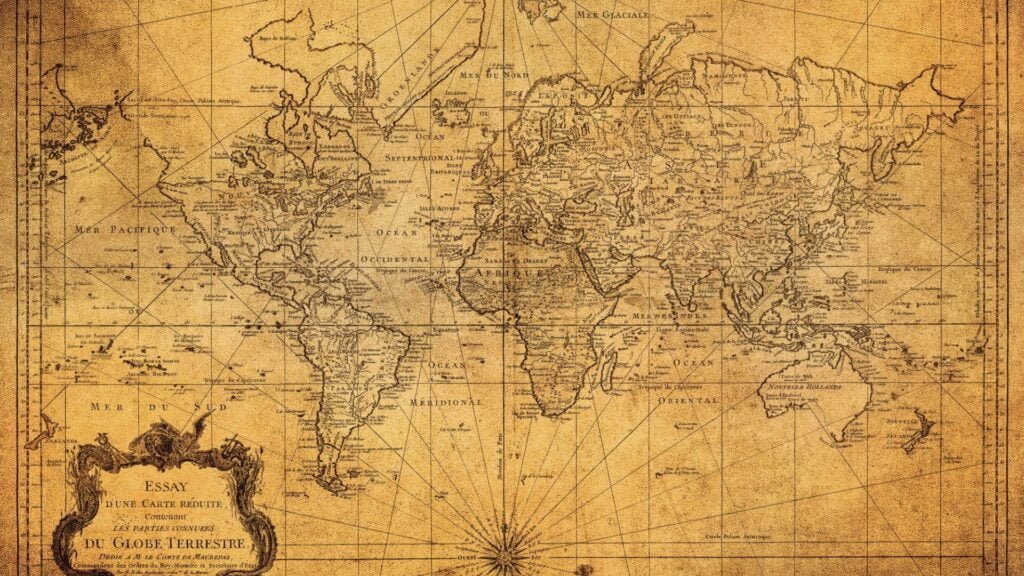Change is constant, and that is especially the case for languages. They evolve, they melt into other languages, and sometimes they even dissolve into oblivion. With the advent of written history, some aspects of languages could finally be preserved. And with that, we could know, with some precision, how old a language is or how it changed over time. With the abundance of literature on the English language, we could predict how it evolved, what changed in its vocabulary and grammar, and what didn’t. Recently, a group of British researchers could put together a list of some of the oldest words in the English language. They believed these words had remained unchanged for more than 15,000 years.
The researchers believe that all languages come from a single proto-language spoken long ago, circa the last ice age. This ancient language broke into seven groups of languages, and they sound a bit like what you’d hear in Game of Thrones. These groups are called Altaic, Chukchi-Kamchatkan, Dravidian, Inuit-Yupik, Indo-European, Kartvelian, and Uralic.
Today, about 700 of the languages used by over half of the world’s people come from these seven groups. The researchers looked at these languages to find words that sound and mean the same in different languages, like “father” being similar to “padre,” “pere,” “pater,” “pitar,” and so on. They used these similar words to create ancient words, which they believed were the ancestors of the similar words.
The researchers could eventually isolate 23 words that are shared by at least four of the seven language groups, making them the oldest and most enduring words in English. Here are these ancient words that are still in use and thriving today.
1. Thou
The word “you” in its single form is unique because it’s the only word that all seven language families have in some way. When language first started to develop, people needed a way to talk to each other and point out the person they were talking to. So, saying “you” has been important ever since then.
2. I
In the same way, you also need to be able to talk about yourself. After all, what’s the point of language if you can’t use it to express yourself and talk about who you are?
3. Mother
The word “mother” is often shared across languages because it’s a fundamental concept in human life. The relationship between a child and their female parent who gives birth to them is a defining experience fo all of us. Since this concept is so ancient and essential to human survival, the word “mother” (or similar sounds in different languages) likely developed very early in the evolution of human language. It’s interesting that “mother” makes the list, but “father” doesn’t.
4. Give
Cooperation has been the number one facator we survived as a scpecies. It wasn’t just a good thing to do; it was a matter of life and death. Study head Mark Pagel said “I was really delighted to see ‘to give’ there. Human society is characterized by a degree of cooperation and reciprocity that you simply don’t see in any other animal. Verbs tend to change fairly quickly, but that one hasn’t.”
5. Bark
Barking here is related to trees not the sound dogs make. Anthropologists believe that in ancient societies, this was very crucial because it was used to create things like baskets and ropes. Additionally, when you boiled it in water, it could be turned into medicine. In fact, aspirin, which is a common pain reliever, was first made from willow bark tea.
6. Balck
This is probably because in its natural state, it helped early humans tell the difference between daytime and nighttime. Another interesting thing to note is that “black” is an important word, but “white” isn’t on the list.
7. Fire
Fire provided light, warmth, safety, a means to cook, and protection from danger. For a very long time, and even for some people today, fire has been the most important tool for staying alive. It was the most effective way to keep the darkness and danger away.
8. Ashes
Self-explanatory, given the importance of fire in early societies.
9. Spit
The act of expelling saliva from the mouth is something people have been doing since the beginning of humanity, so the word for it has been around for a very long time. Words like “spit” tend to be preserved in a language because they are connected to essential, everyday activities that have been a part of human life for a very long time.
10. Man/Male
It is worth noting that the word “woman” doesn’t appear on the list, and this linguistic reality could reflect the historical dominance of male power in many parts of the world for a long time.
11. Hand
Apart from our brains, one could argue that the most important body part for a human to survive is our hands, especially because of our thumbs that can move against the other fingers.
12. Hear
In the past, we needed to hear various sounds for our survival, like the footsteps of a dangerous animal coming near, the noise of prey animals running away, and the cries of a baby. That’s why there was an urgent need for the word “hear”.
13. Flow
It’s not entirely clear why this word was so important, but it might have been linked to another crucial aspect of survival: the need for water.
14. Old
Having wisdom is crucial for survival. In traditional societies, older members of a community were highly regarded and their advice was valued because they had experienced more and, as a result, knew more. It would be beneficial for our contemporary culture to reintroduce this kind of respect for older individuals.
15. This
That’s likely because you’d want to be able to point out or identify this rock.
16. That
Not that rock.
17. Pull
The list of things you needed to pull was endless: wood, animals, stones, etc.
18. Worm
This is the most random word on the list.
19. Ye
In modern English, “your” is used for this purpose. It’s a helpful word when asking about things in your camp, like when you might say, “Are these yours?”
20. Not
The need for negation is as old as we are. Such basic function words tend to remain relatively stable over time and might not change much in their form or usage.
21. We
Pronouns like “we” are among the most fundamental words in a language, and they tend to have ancient origins because they represent a basic human need to communicate about ourselves and others.
22. Who
Questions related to identifying individuals or things have been essential in human communication throughout history. As a result, words like “who” have ancient origins, as they fulfill a basic and enduring role in language and human interaction.
23. What
Throughout human history, people have needed to ask questions about the world around them, and words like “what” have been essential for this purpose.







